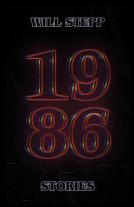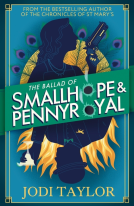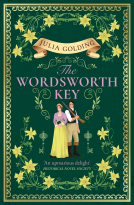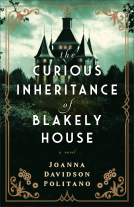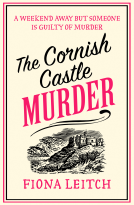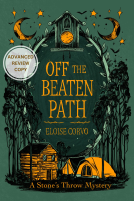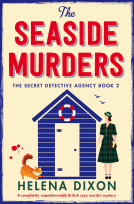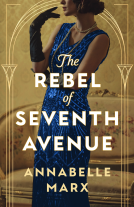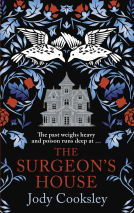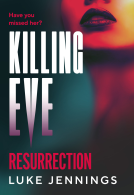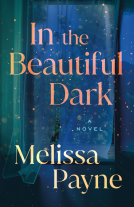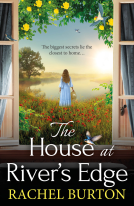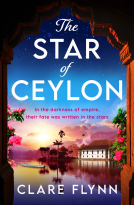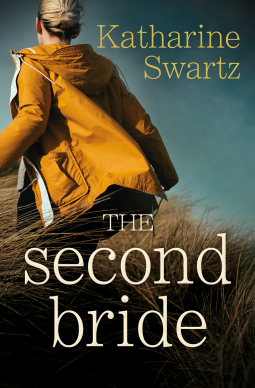
The Second Bride
Tales From Goswell
by Kate Hewitt; Katharine Swartz
This title was previously available on NetGalley and is now archived.
Send NetGalley books directly to your Kindle or Kindle app
1
To read on a Kindle or Kindle app, please add kindle@netgalley.com as an approved email address to receive files in your Amazon account. Click here for step-by-step instructions.
2
Also find your Kindle email address within your Amazon account, and enter it here.
Pub Date 17 Feb 2017 | Archive Date 31 Mar 2017
Lion Hudson Plc | Lion Fiction
Description
A Note From the Publisher
Advance Praise
"With stunning prose and deep emotion, Katherine Swartz weaves a powerful story of love and redemption, perfect for the world right now."
Maisey Yates, New York Times Bestselling author of Hold Me, Cowboy.
"...kept me turning pages until the early hours!"
Kathleen McGurl, author of The Daughters of Red Hill Hall.
Available Editions
| EDITION | Other Format |
| ISBN | 9781782642121 |
| PRICE | US$14.99 (USD) |
Featured Reviews
 Maureen H, Educator
Maureen H, Educator
The Second Bride by Katharine Swartz kept me reading into the night. Poor Sarah died at age 22 in 1872. Her death certificate was found hidden in the floorboard of a house undergoing remodeling, and Ellen, the present day wife, set off to solve Sarah's mystery. Poor Sarah and her mute sister Lucy lived a desolate life and through a series of bad events, Sarah ends up marrying a widower with a teenaged daughter. In the present, Ellen is married to Alex, whose teenaged daughter has come to live with them for a year. The book alternates between Ellen and Sarah's voices and the mystery is slowly unraveled. Netgalley provided me this e-galley in exchange for a fair and honest review. This book is worth reading.
 Rosemary S, Librarian
Rosemary S, Librarian
Ellen Tyson is enjoying a quiet, peaceful life with her husband when storm clouds blow in. Her husband’s teenage daughter, Annabelle, unceremoniously moves in with them. Ellen tries to get along with the teen, but Annabelle makes it clear she has no interest being part of her father’s new family. When Ellen finds a death certificate dated 1872 under the attic floor boards, she sees an opportunity to get Annabelle involved in a real life mystery. Together they search for the truth about Sarah Mills and in doing so, see the similarities between the past and present. Told in both the present day and the mid-nineteenth century narratives, this is one of those books you just want to crawl up inside. A wonderful read for a cold winters night
 Reviewer 13166
Reviewer 13166
I’d enjoyed The Vicar’s Wife and was pleased to be given the opportunity of reading another book by the same author. Like TVW, it is set in Goswell, Cumbria. (There are more Goswell books, which I shall seek out.) Again we have modern day problems set against those of the past, with some historical detective work linking the two. In the present day, Ellen is living happily in Goswell with her second husband and her two daughters, the elder away at university. Out of the blue, her husband informs her that his daughter from his first marriage is coming to live with them for a year while her mother swans off to America. Not surprisingly, the teenaged Annabelle has no wish to leave home and stay in the middle of nowhere and behaves impossibly badly. Suddenly, Ellen’s perfect life starts to unravel. She realises how little she knows about her husband’s first marriage and resents the fact that he can’t or won’t see how Annabelle is upsetting her and that he spends Dad time with her rather than with their young daughter. Then her girls start behaving uncharacteristically and the whole family seems about to fall apart.
Ellen’s best friend is Jane, the modern day occupant of the vicarage in The Vicar’s Wife. Jane had found a shopping list which set her researching the life of a woman who had lived in the same house. Ellen finds a death certificate hidden under the floorboards in the attic. Like Jane with her shopping list, Ellen becomes obsessed with solving this little mystery. Who was Sarah, who died in Kendal in 1872, and why had someone hidden her death certificate? The narrative moves between the present and the late nineteenth century in search of the answers.
I found this book slow to begin with and a little hard to get into but once the detective element came in, I was as keen as Ellen to find out more about Sarah. Hers is a sad and shocking tale and I was more interested in that than in finding out whether Ellen could save her marriage. It’s all quite gripping and I recommend it for readers who like these fashionable backwards and forwards narratives.
 Julie H, Reviewer
Julie H, Reviewer
Beautifully written story which compares Ellen's family problems with those of Sarah Mills who lived in the 1870s. Both woman have similar problems in a lot of ways. The way the chapters flip between Ellen and Sarah bring the story together brilliantly. This book is well worth reading.
 alison r, Reviewer
alison r, Reviewer
Really enjoyed this book. It is a parallel story between the past and modern day with a connection between them.
I thought the ending was a bit abrupt though. I liked the comparisons between the families and how they developed throughout the story. Would recommend to friends.
 Cheryl N, Reviewer
Cheryl N, Reviewer
Thoroughly enjoyed reading this book. I loved the way it swung from past to present in alternate chapters. Would definitely recommend this book.
 Judith S, Reviewer
Judith S, Reviewer
Interesting novel switches between 2 second wives struggling to cope with a daughter from the husband's first marriage in the same location but in different time periods. Both women feel the weaker partner in the marriage but for different reasons, Sarah has married her husband to save her sister, who suffered brain damage at birth, from the workhouse while Ellen has married a man who struggles to deal with emotional issues for love. I found the descriptions of the Victorian era particularly moving, Sarah's life is one of unrelenting drudgery from which there is no escape but the actual writing seemed to be very 21st century so was a little jarring. The book dragged a bit in the middle but I was glad I persevered as the ending was more satisfying than I expected. Thanks to Netgalley for sending me a free copy in exchange for an honest review.
 Reviewer 21037
Reviewer 21037
The Second Bride is a dark novel that tells two stories, one current and the other historical. Both storylines became more depressing as they progressed. I liked and felt for some of the characters, and wished for good outcomes for them.
When Ellen Tyson's stepdaughter, Annabelle, comes to live with her family, it quickly becomes clear that Ellen and husband, Alex, don't have the close relationship she imagined. The household is quickly divided over Annabelle and her refusal to try to fit into the family. Trying to bond with the girl, Ellen tells her about a death certificate from 1872 that construction works recently found under the floor of the home, and asks for her help in researching the young woman who died. This is where the historical storyline of Sarah and her mute sister, Lucy, comes in. We are shown that the two endured much hardship during their lives, as their story begins to unravel.
This book was interesting and definitely held my attention. It was much darker than what I've read previously by this author, and I was a little disappointed by that. Thanks to the publisher and NetGalley for providing a copy of the book in return for an honest review.
 Judith S, Reviewer
Judith S, Reviewer
Loved this book and would heartily recommend it to friends and family. The comparisons to modern day and life in the late nineteenth century worked extremely well and I felt the author managed to conjur up Ellen's frustrations superbly. Also liked the way she tied everything up in the end, not a case of happy ever after but a poignancy that was befitting. A good read.
 Geraldine S, Educator
Geraldine S, Educator
Ellen has everything - a loving husband, two wonderful daughters (by different fathers), a developing business and a newly renovated Lakeland cottage. During the renovations a death certificate from 1872 is found in her cottage and this creates the context for the novel told in two time periods in the same location. From reading the acknowledgements it would seem that the author did actually possess such an artefact which provided the incentive for creating the story. In the 1860's - 70's Sarah had nothing and her harsh life contrasts with Ellen's comfortable life but only on the surface. For both women being the second wife of their husbands brings emotional difficulty and torn loyalties. The stories are well told by an author who knows the geographical area well and has researched the historical period. The characters are well developed although this reader had more sympathy for Sarah than for Ellen. The connections are plausible and there is no attempt to over-labour them as there can sometimes be in books of a similar genre. I found both Ellen's and Sarah's relationship with the Church interesting and note that the author is in fact married to a vicar. I enjoyed reading this novel and it could be interesting to know more of what happens to the 21st century young people in this tale ( Ellen's daughters and step-daughter). I understand there are other books in the Tales form Goswell series but do not know if they concern the same characters or have a similar dual-timeline.
 Jean W, Reviewer
Jean W, Reviewer
This was a real page turner from the beginning. Will definitely look for this author in future.
 Tracey S, Reviewer
Tracey S, Reviewer
In the present day, a woman (Ellen) having the attic room of his home renovated is handed a piece of paper the builders find: the death certificate of a 22-year-old woman from 1872, Sarah Mills. She sets it aside, intrigued but not enough to investigate it – yet. When her husband's 17-year-old daughter from his first marriage comes to live with them, bringing with her more emotional than physical baggage, Ellen seizes on the idea of finding out more about this girl who died so very young, involving the teenager in the search as, hopefully, a way of making some kind of connection. The results are mixed.
Sarah's story alternates with Ellen's. In 1868, she and her sister are left orphans, and their situation is desperate – until the aunt they never knew they had consents to take them in. Sarah on her own might be able to get by, but her younger sister Lucy is … different. She has never spoken, although Sarah knows this doesn't mean she's the "imbecile" everyone assumes she is, and she also has other idiosyncracies which make others uncomfortable. In other words, Lucy is autistic in a time long before that was viewed with any understanding or empathy.
How Sarah ends up dead and with a different name within the four years spanned in the book is a horribly painful story, not least because you read it knowing full well that there were hundreds, thousands of real stories just like it and worse. Alternating it with what are often called the "First World Problems" of Ellen and her stitched-together family is rather jarring; oh, dear, the teenager rolls her eyes and says "Whatever" a lot. This doesn't look like much compared to the physical and emotional abuse Sarah and Lucy face every day, and the extremely precarious, potentially terminal circumstances over which they walk a tightrope. Even the harsher problems that develop for this modern family seem so entirely trivial beside the life-and-death situations of the 19th century. A two-day suspension from school does not exactly stack up next to the possibility of being put into a workhouse.
And, in the end, it all seems to wrap up so happily. In the 19th century, yes, Sarah dies at 22 – but everyone else seems to have an abrupt upswing in fortune, very nearly happily-ever-after. And in the 21st century, as well, everything tidies up nicely by the end of the book; if it is not a HEA, there still is no real shadow over the ending. Everything's going to be just fine. And that doesn't work. There are serious issues in both centuries – none of which can or should be tucked up tidily with no loose ends – and it cheapens the rest of the story that the end comes as it does.
The usual disclaimer: I received this book via Netgalley for review.
 Marcia S, Reviewer
Marcia S, Reviewer
The Second Bride has two storylines, one preset day and one set in 1860s. Similar circumstances for a new bride in both cases. The book is well written. I found the book to be too depressing for my taste
 Stella G, Reviewer
Stella G, Reviewer
While the description of the plot of The Second Bride felt promising, the execution fell short.
This story was told in two alternating sections, present day and 1870. Ellen and her stepdaughter try to unravel a mystery but the mystery itself wasn't all that interesting.
I felt the ending was rushed and wrapped up a little too quickly. This might be for a reader...that isn't me.
Thanks to NetGalley and the publisher for the eARC in exchange for this review.
 Iola G, Reviewer
Iola G, Reviewer
The Second Bride is an intriguing dual-timeline story set in the wild north of England. The present-day plot centres around Ellen, a freelance proofreader married to Alex. It’s the second marriage for both of them—they each have a teenage girl from their respective first marriages, and they also have ten-year-old Sophie.
It’s a peaceful life, until Alex’s ex calls with the news that she’s leaving the country for a year and their sixteen-year-old daughter will have to come and live with them. This well and truly messes up the family dynamics as Ellen finds herself cast in the unwanted role of the wicked stepmother, and resenting the fact Alex leaves the parenting of Annabelle up to her. Ellen finds an old death certificate hidden in the boards of the spare bedroom … and that’s the link to the past storyline.
The death certificate is for Sarah Mills, who died in 1872 at the age of twenty-two, of ‘General Debility’. That provides instant conflict and suspense for the past story, which starts in 1868 as eighteen-year-old Sarah Telford and her ten-year-old sister are leaving their home town of Goswell for Kendal, to live with their aunt, their only surviving relative. Sarah’s story is revealed in the past as Ellen searches for it in the present, at the same time as trying to hold her family together.
I have to say that I found Sarah’s story a lot more engaging. Ellen’s problems were real, to be sure, and—like Sarah—she didn’t necessarily have a lot of control over what happened to her. That frustrated me as I like to see characters triumph over their circumstances, and that never quite happened for Ellen.
It didn’t happen for Sarah, either, but we knew from the first page that she was going to die young, so her story was tinged with that sadness. Also, Sarah’s misfortune wasn’t the result of her own bad choices—it was more the result of bad luck and circumstances she couldn’t see any other way out of. And that engaged me more than Ellen, especially when I compared Sarah’s self-sacrificing attitude with Ellen’s simmering resentment of Annabelle and her effect on their once-happy family.
So the present story was good, but the past story was better. The writing was solid but not spectacular, but there was plenty of conflict and it certainly kept me reading. The Second Bride is part of the Tales from Goswell series, but can easily be read as a standalone novel. I didn’t even realise it was part of a series at first, and don’t feel I missed anything.
Recommended for those who like British fiction.
Thanks to Lion Fiction and NetGalley for providing a free ebook for review
 Heather N, Librarian
Heather N, Librarian
Another book with a second tale set in the past and I'm not altogether sure they married up in the end. However, I enjoyed the portrait of modern family life, the difficulties of joining two families together and having to be super-Mum to everyone without any feelings of resentment, jealousy or frustration. Overall I think it will be a popular read and it certainly kept my interest .
Major drama
It all begins with a death certificate, Sarah Mill's death certificate, hidden beneath the floorboards of Ellen's attic. Ellen is a freelancer, and the mother of two girls. She is finally going to get her own home office, it just needs some furnishing. This is how the certificate is discovered.
Ellen couldn't be happier with the prospect of her own room in the house but, this is threatened when Annabelle arrives at the scene. Annabelle is Ellen's stepdaughter, the last time they saw one another was when Annabelle was seven. They don't have any fond memories of that first time. It had been a bitter summer for them both... And now, it seems, Annabelle is back- only older.
Ellen's drama plays alongside the life of Sarah Mill's. Ellen thinks it might be a good idea to involve Annabelle into her project with the death certificate, seeing as Annabelle is studying History A Level (I studied this too!)
We learn of Sarah's life, the events leading to her death, her heartbreaks and hardships. This novel is strong in its range of core messages: sisterhood, loyalty, independence, courage, trust and acceptance. Sarah and her sister, Lucy, have just lost their mother. They haven't got a penny to their name and no living relative, except for an aunt who disowned their late mother. They turn to her, in good faith, and for a time there's hope- even in the dullness of their lives. Ellen learns of Sarah's remarkable,quiet life, while adjusting her own life to make room for a stepdaughter she barely knows.
This book explores the meaning of motherhood the sacrifices, the broken dreams, troubled marriages and ultimately, the disrupted families. The parallels between the two lives, Ellen's and Sarah's, were written well. The chapters were written in a way that made you feel like you didn't know which story interested you more. As a lover of history, my answer is clear: Sarah Mill's story was heartbreakingly tragic. Her hopes quashed, repeatedly: people never failed to disappoint. Yet she held strong, a determined force. Her sister, Lucy, remained her beautiful, sustaining, light. Will this change as well?
'The Second Bride' is far from your average book, fans of Rebecca Burn's 'A Bishop's Girl' would enjoy this. The style and themes are similar- both books have the power of connecting you, and touching your heart.
I received this book through NetGalley and I wouldn't hesitate in recommending it.
"Ellen Tyson's idyllic village life is derailed when Annabelle moves in. The teenage daughter from her husband's first marriage, Annabelle is seventeen, surly, and defiant. And she has no interest in being part of her father's second family.
When a death certificate from the 1870s, hidden beneath the floorboards of their attic, is discovered during a renovation, Ellen tries to use it as a way to get closer to Annabelle. But as both women learn about Sarah Mills who died in 1872, they find the past reflected in their own lives in strange and startling ways.
A dual narrative between the present and the 1860s, The Second Bride is a powerful and moving drama that narrates the difficulties and joys of blending families."
I'm a sucker for dual narratives.
Swartz's latest novel set in Goswell features two timelines — present day and the 1860s. The modern story will hit close to home for many readers, because the angst and drama is quite realistic and heart-wrenching. Overall, the story dwells far too long in a dark, depressing manner, with some light shining only at the very end of both stories. A better balance would have served to make the novel brighter and less heavy on the soul.
Ellen Tyson and her husband Alex have made a comfortable life in Goswell with their blended family. But when Alex's estranged teenage daughter Annabelle moves in with them for a year, things get shaken up. Annabelle is surly and disrespectful to Ellen, and Ellen resents her presence more each day. Ellen finds an old death certificate hidden in her attic, and she sets about researching the circumstances of the young woman’s death. In 1860, a woman named Sarah must move to Goswell with her younger sister Lucy after their parents die. They move in with an aunt they never knew existed and are forced to live a different kind of life, until tragedy strikes and leaves them with nowhere to turn.
